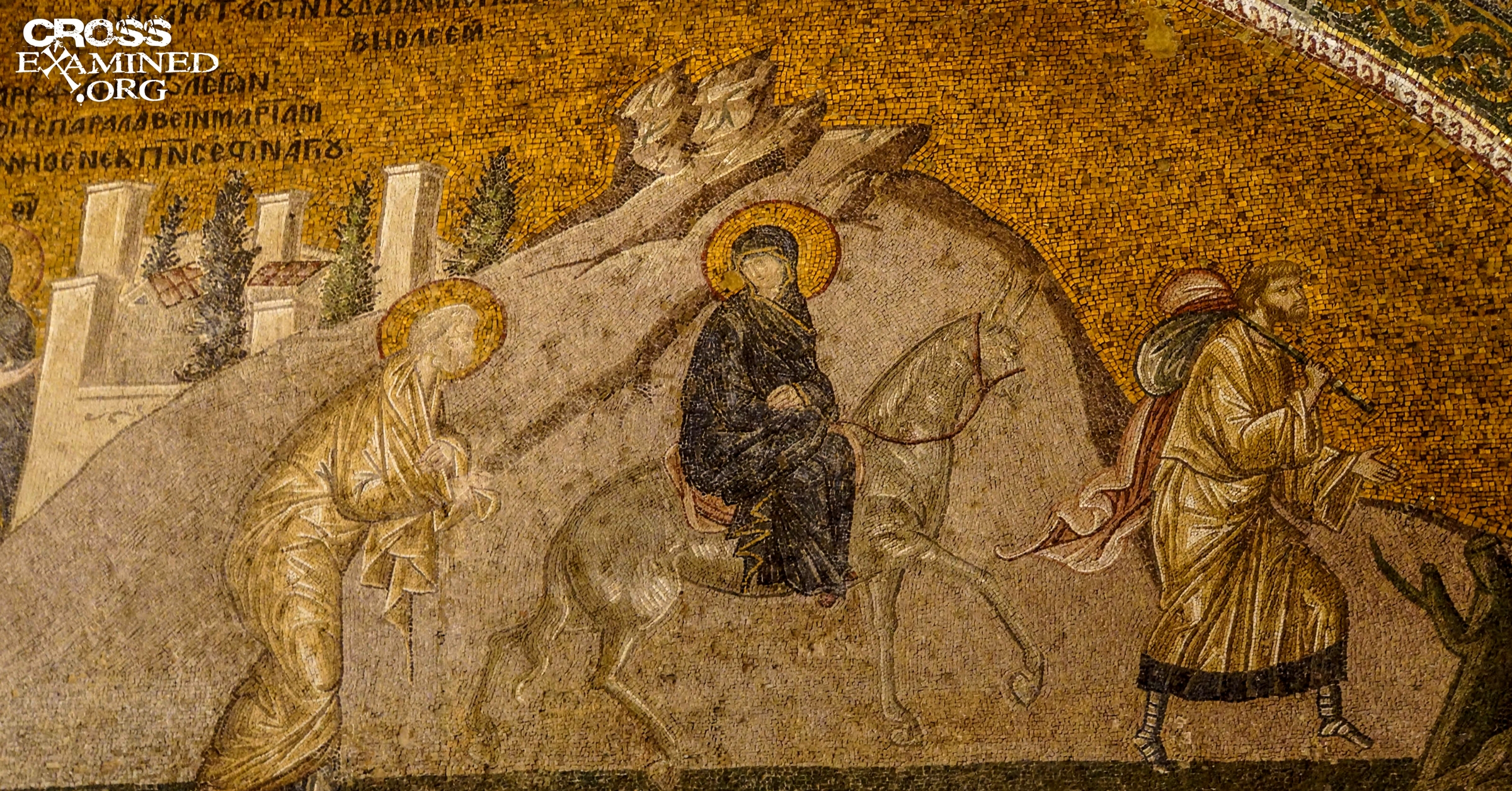By Tim McGrew
One of the favorite targets of destructive biblical criticism is the narrative of Jesus’ birth in the first two chapters of Matthew. One distinctive feature of Matthew’s account makes it a particularly tempting target. Matthew’s theological agenda is absolutely overt: over and over in the first few chapters of his Gospel, we get some variation on the phrase, “… all this took place to fulfill what was spoken by the prophet…” followed by a quotation of some passage from the Old Testament. Clearly, Matthew is deeply concerned to show the birth of Jesus as the fulfillment of Old Testament prophecy.

There are two ways to look at that fact. From a traditional Christian perspective, Matthew, knowing some of the events surrounding Jesus’ birth, searched back through the prophets to find passages that would resonate with the events. Jewish interpretive practices in the first century were varied and complex and not always something sober twenty-first-century readers would engage in. Still, Matthew’s use of those techniques (still a debated issue in some circles) is pretty tame by Jewish standards of his time.
It is not difficult, in a quick online search, to find long lists of ostensible messianic prophecies fulfilled by Jesus. Take Hosea 11:1, for example:
When Israel was a child, I loved him, and out of Egypt I called my son.
One recent commentary (John Phillips, Exploring the Minor Prophets: An Expository Commentary (Grand Rapids: Kregel, 2002), p. 60) reflects on this passage:
Devout Jewish students must have often pondered this Messianic prophecy. How can the Messiah possibly come out of Egypt? they no doubt reasoned.
Or consider Jeremiah 31:15:
Thus says the LORD, “A voice is heard in Ramah, Lamentation and bitter weeping. Rachel is weeping for her children; She refuses to be comforted for her children, Because they are no more.”
Even in Jeremiah’s time, Rachel had been dead for centuries; her mourning is a metaphor. Matthew, reflecting on the small but brutal massacre in Bethlehem, saw history coming full circle again and found in Jeremiah’s description of Rachel’s lament an apt metaphor for events in his own time.
Above all, there is the much-disputed sign promised in Isaiah 7:14:
Behold, the virgin shall conceive and bear a son, and shall call his name Immanuel.
As the notes in the NET Bible Synopsis of the Four Gospels inform us, the “Messiah was to be born of a virgin”—and despite what appears to be an unending wrangle over the words almah and parthenos, it is not hard to see how Matthew, learning that Jesus had indeed been born of a virgin, would have taken the event to be a fulfillment of prophecy.
But from a more cynical perspective, this order of looking at things is backwards. Matthew, knowing the Old Testament prophecies, and persuaded that Jesus was the Messiah, invented the stories in order to fit the prophecies. The events did not remind Matthew of the prophecies; the events, in fact, never took place. Rather, recollected prophecies gave rise to the fabrication of the Christmas story.
The simplicity of the skeptical theory gives it a certain superficial charm. Anything Matthew says that cannot be independently verified can be explained away in this fashion. Why does he (but not Luke) send Jesus to Egypt? Because that way, Jesus can be seen as fulfilling the prophecy in Hosea.
Regarding Jeremiah 31:15, George Wesley Buchanan (Jesus, the King and His Kingdom (Macon: Mercer University Press, 1984), p. 292) writes:
Jeremiah was a prophet. Therefore, he would have been speaking only of the days of the Messiah. Why would there be weeping in Herod’s day? Herod must have slaughtered Rachel’s descendants the way Pharaoh had done with the Hebrew children in Egypt.
There is the reversal: Herod “must have” done this, as it is what the prophecy requires; therefore, the story fulfills the prophecy, neatly bypassing actual history in the process.
And for Isaiah 7:14, the skeptical explanation seems ready made. Does Isaiah prophesy a virgin birth for the Messiah? Well, then if Jesus is the Messiah, a virgin birth he must have. To the skeptical eye it is all so so clear, so satisfying.
Except for one small problem. In all of the Jewish literature prior to the advent of Christianity, there is not one scrap of evidence that any Jewish reader ever considered Isaiah 7:14, Jeremiah 31:15, or Hosea 11:1 to be messianic prophecies.
It is not as though we lack evidence of what they did consider to be messianic. We have an abundance of evidence on that front. In an appendix to the second volume of his massive work The Life and Times of Jesus the Messiah, Alfed Edersheim lists 456 passages that are glossed in the Targums or the Talmud as messianic. And not one of these passages makes the list.
I want to express myself carefully here, as there is a risk that I will be misunderstood. I am not saying that, by the standards of first-century Jewish interpretation, these passages could not be taken to resonate with actual events in the life of Jesus. Clearly they could—if those events really transpired, they might well suggest that sort of application of these passages. What I am saying is that, so far as our evidence is concerned, there is no reason whatsoever to believe that an overly zealous first century Jew, intent on making up a story about the birth of the Messiah, would reach for these passages or feel the need to work them into his narrative. There is plenty of other material to work with. But for this hypothetical Jewish-Christian novelist, these three passages are simply not relevant.
The fact that the Jews themselves did not consider these passages to be Messianic is fatal to the theory that the birth narrative in Matthew was fabricated to accord with messianic expectations. One might even reverse the argument. It is not easy to find a good explanation for the incorporation of such material into a fictional account of Jesus’ nativity. Yet there it is. How, then, shall we explain that fact? Why did Matthew feel moved to draw out just those strands from the prophetic writings, unless it was because the parallels were suggested by the events themselves?
Against this, there is always the fundamental fallback position of skepticism, a position that Matthew Arnold puts with admirable bluntness in his Preface to Literature and Dogma (London: Smith, Elder, & Co., 1883), p. xii:
[O]ur popular religion at present conceives the birth, ministry, and death of Christ, as altogether steeped in prodigy, brimful of miracle;—and miracles do not happen.
With such an antagonist, one knows where one stands. There is no subterfuge here, no pretense that the narratives must be set aside because of the results of dispassionate historical criticism. As G. K. Chesterton observes:
Somehow or other an extraordinary idea has arisen that the disbelievers in miracles consider them coldly and fairly, while believers in miracles accept them only in connection with some dogma. The fact is quite the other way. The believers in miracles accept them (rightly or wrongly) because they have evidence for them. The disbelievers in miracles deny them (rightly or wrongly) because they have a doctrine against them. [Orthodoxy (New York: Dodd, Mead and Co., 1945), pp. 278-79]
? Visit the Christian Apologetics Alliance ?



















Facebook Comments